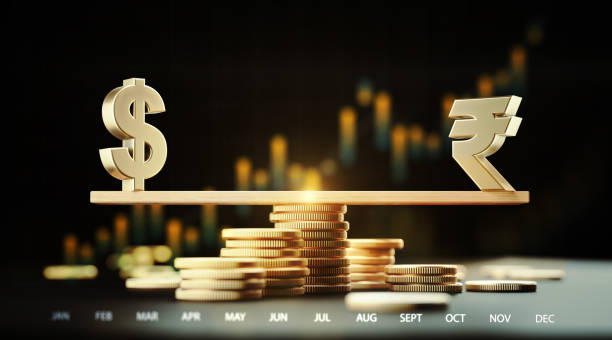
If you look at the leading economies and the world as a whole it a great concern. Post pandemic times, it is going to be a challenging situation for every economy without any exception. Russian & Ukraine war further aggravated the situation not only in food supply distribution but also in terms of economic spends and allocation of defense budget as well, hiking the need for provision while all the economies are contracting in a big way.
IMF and World bank has been revising GDP growth for many countries at least three times this year. Is recession eminent across economies of the world? The answer could be yes mostly. But it can be averted with certain economic measures by the governments across the world. Some of us can take a view that British pound and Japanese yen are too not stronger against dollar compared to Indian rupee. But, that cannot be a common man’s view in galloping inflationary trends in the country. We need to look at measures to control inflation, imports. Timely intervention by the policy makers and money regulators are absolute necessities at this hour. Let us not pacify ourselves by saying that we are doing better than other currencies against the dollar.
When the rupee is tumbling against the dollar for the past a month plus. Are the measures taken by policy makers and governments is a big question mark. The current account deficit is to be addressed on priority while controlling the imports. Inflation is soaring and the measures taken by the government seems to be inadequate. Certainly, these two areas have to be looked into by the policy makers. Controlling the imports to ensure the arrest of falling rupee and bridging the current account deficit. Another critical area to be looked into is to facilitate service sector growth. As it is not possible to increase the exports in the short run the only way to control is to ensure controlling the imports. Weakening domestic currency may boosts some exports as the shipments may become competitive as buyers gain more purchasing power. However, to make it happen in reality is difficult too.
The requirement of dollars will be more than domestic currency and India will depreciate against dollar as money flows out of India and the rupee dollar exchange rate gets impacted. Very interestingly, this problem is further aggravated with the US Federal reserve increasing the interest rates compared with emerging economies of the world. India is a major importer of metals, electronics, cars, crude oil (almost 80% imports). The crude oil prices has a crude story to narrate despite our efforts with Russia continued. There is no respite in per barrel above $100 prices continue to have inflationary impact on all prices in India. India is grappling with high inflationary pressure and weak production and market growth. Service sector growth is dismal in the last two quarters. Indian Foreign Exchange reserves, will continue to dip till proper measures are taken by us collectively and cohesively.
If I as an author of this article imagine further hike in interest rates in US Federal reserves will deteriorate rupee further. We do not see oil prices falling in the near future. Means, more stress on India due to higher dependency on crude imports and the outflow of dollars. In the current situation the money and foreign currency monitoring agency namely, RBI must intervene to control foreign exchange market and excess volatility situation.
The central bank of the country has to fight on several fronts to arrest this free fall of rupee against the dollar. There are speculations on this point by several experts stating that let rupee depreciate further to witness natural balance. The recent increase of repo rate by 50 basis point to subdue the inflation seems to be inadequate as well looking the inflation growth. The inflation is pegged at 6.7 per cent is further moving upwards is a great concern though the YoY growth on GDP is better, the real GDP could be much lower around seven per cent. The good news is economic activity is resilient and the investments are positively growing as well.
The sharpest descent in the rupee value is a good learning but it is likely to impact and disrupt the spending plans of the country and individuals headed abroad, especially students pursuing higher studies who would have recently moved out of country borrowing heavily. It may also pinch the Indian travelers planning an overseas trip for a bigger outlay. The unprecedented rise inflation in the US has pushed US Federal reserves to push through aggressive interest rate hikes, which has created an artificial attraction for dollar and more attractive for international investors as dollar portrays a safe color of currency amid the fears of a looming recession.
All others currencies have tumbled in this process. Hopefully, rupee regains its footing in the coming months. The stress in the global supply chain has to further get eased for better things to happen in world economies. The pace of FII outflows from the equity markets slows down it may bring further improvement in the situation in India. Another point to be noted in the share market is the larger impact on the equities portion of the investor’s portfolio. Any sharp change in the currency can impact the earnings of the listed companies also. A falling rupee is a short term gain for exporters and a bad news for importers. A managed portfolio will be a better option for equity investors. There are other options to invest via international funds to minimize the impact of falling rupee against dollars.
There are no answers in a crystal ball but it is all about market realities. The crux is to control inflation internally and give more purchasing power to Indian consumers and investors. The balance of payments shows that the slide might continue for some more time with the weakening currencies and continuous increase in inflationary trends in India. Let us see some big changes by the regulatory authorities and the government to improve the situation.
Dr. C.N.Narayana:
Author of this article is a renowned management professor, writer and a corporate leader with more than 35 years of experience. He has contributed immensely for the corporate world across the globe and held leadership positions in leading management Institutes in India. He is also the Founder & Director of MBA Pulse Visit: www.mba-pulse.com





